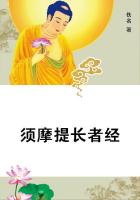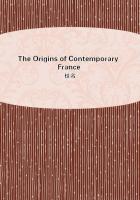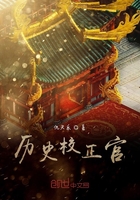What of the suspension of consciousness which drugs or disease may bring about? Could either welfare or happiness be present under such conditions? And this is to say nothing of misery and disgrace, which will certainly be urged against us, with undoubtedly also those never-failing "Miseries of Priam.""The Sage," we shall be told, "may bear such afflictions and even take them lightly but they could never be his choice, and the happy life must be one that would be chosen.The Sage, that is, cannot be thought of as simply a sage soul, no count being taken of the bodily-principle in the total of the being: he will, no doubt, take all bravely...until the body's appeals come up before him, and longings and loathings penetrate through the body to the inner man.
And since pleasure must be counted in towards the happy life, how can one that, thus, knows the misery of ill-fortune or pain be happy, however sage he be? Such a state, of bliss self-contained, is for the Gods; men, because of the less noble part subjoined in them, must needs seek happiness throughout all their being and not merely in some one part; if the one constituent be troubled, the other, answering to its associate's distress, must perforce suffer hindrance in its own activity.There is nothing but to cut away the body or the body's sensitive life and so secure that self-contained unity essential to happiness."6.Now if happiness did indeed require ******* from pain, sickness, misfortune, disaster, it would be utterly denied to anyone confronted by such trials: but if it lies in the fruition of the Authentic Good, why turn away from this Term and look to means, imagining that to be happy a man must need a variety of things none of which enter into happiness? If, in fact, felicity were made up by heaping together all that is at once desirable and necessary we must bid for these also.But if the Term must be one and not many; if in other words our quest is of a Term and not of Terms; that only can be elected which is ultimate and noblest, that which calls to the tenderest longings of the soul.
The quest and will of the Soul are not pointed directly towards ******* from this sphere: the reason which disciplines away our concern about this life has no fundamental quarrel with things of this order; it merely resents their interference; sometimes, even, it must seek them; essentially all the aspiration is not so much away from evil as towards the Soul's own highest and noblest: this attained, all is won and there is rest- and this is the veritably willed state of life.
There can be no such thing as "willing" the acquirement of necessaries, if Will is to be taken in its strict sense, and not misapplied to the mere recognition of need.
It is certain that we shrink from the unpleasant, and such shrinking is assuredly not what we should have willed; to have no occasion for any such shrinking would be much nearer to our taste; but the things we seek tell the story as soon as they are ours.For instance, health and ******* from pain; which of these has any great charm? As long as we possess them, we set no store upon them.
Anything which, present, has no charm and adds nothing to happiness, which when lacking is desired because of the presence of an annoying opposite, may reasonably be called a necessity but not a Good.
Such things can never make part of our final object: our Term must be such that though these pleasanter conditions be absent and their contraries present, it shall remain, still, intact.
7.Then why are these conditions sought and their contraries repelled by the man established in happiness?
Here is our answer:
These more pleasant conditions cannot, it is true, add any particle towards the Sage's felicity: but they do serve towards the integrity of his being, while the presence of the contraries tends against his Being or complicates the Term: it is not that the Sage can be so easily deprived of the Term achieved but simply that he that holds the highest good desires to have that alone, not something else at the same time, something which, though it cannot banish the Good by its incoming, does yet take place by its side.
In any case if the man that has attained felicity meets some turn of fortune that he would not have chosen, there is not the slightest lessening of his happiness for that.If there were, his felicity would be veering or falling from day to day; the death of a child would bring him down, or the loss of some trivial possession.
No: a thousand mischances and disappointments may befall him and leave him still in the tranquil possession of the Term.
But, they cry, great disasters, not the petty daily chances!
What human thing, then, is great, so as not to be despised by one who has mounted above all we know here, and is bound now no longer to anything below?
If the Sage thinks all fortunate events, however momentous, to be no great matter- kingdom and the rule over cities and peoples, colonisations and the founding of states, even though all be his own handiwork- how can he take any great account of the vacillations of power or the ruin of his fatherland? Certainly if he thought any such event a great disaster, or any disaster at all, he must be of a very strange way of thinking.One that sets great store by wood and stones, or...Zeus...by mortality among mortals cannot yet be the Sage, whose estimate of death, we hold, must be that it is better than life in the body.
But suppose that he himself is offered a victim in sacrifice?
Can he think it an evil to die beside the altars?
But if he go unburied?
Wheresoever it lie, under earth or over earth, his body will always rot.
But if he has been hidden away, not with costly ceremony but in an unnamed grave, not counted worthy of a towering monument?
The littleness of it!
But if he falls into his enemies' hands, into prison?
There is always the way towards escape, if none towards well-being.
But if his nearest be taken from him, his sons and daughters dragged away to captivity?
What then, we ask, if he had died without witnessing the wrong?

